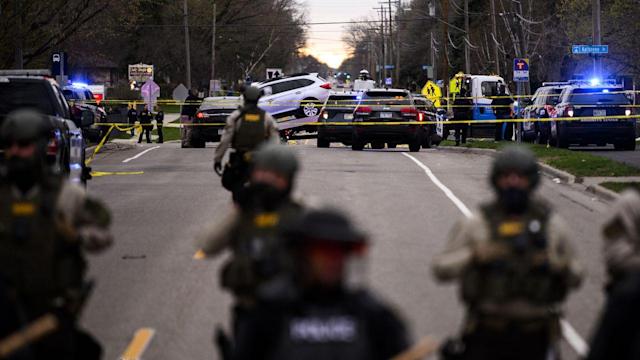The judge presiding over Derek Chauvin’s murder trial denied a motion by the defense to sequester and question the jury in the aftermath of the fatal police shooting of Daunte Wright near Minneapolis Sunday night.
Why it matters: The defense argued that the police shooting of a Black man just miles away from where George Floyd died could influence the jury and result in prejudicial bias.
- The prosecution countered that Wright’s case was sufficiently different and that “world events happen, things continue to happen in the state despite the fact that we’re all here in trial.”
- The prosecution also argued that it would be exceedingly difficult for the jurors to avoid all exposure to media, and noted that jurors had already been questioned about their ability to remain impartial during jury selection.
“This is a totally different case,” Judge Peter Cahill said after denying the defense’s motion. He acknowledged that some jurors may have heard about the civil unrest in Minneapolis Sunday night, but that no significant change in the jury’s security had taken place.
- Cahill said that he chose not to sequester the jury at the trial’s start with the caveat that sequestering could happen if someone reached out to a juror and tried to influence them — but he noted Monday that this has not happened.
- Cahill also said that the jury may be sequestered next Monday when the case anticipates closing arguments.
Between the lines: “The idea here you’re going to be able to sequester a jury away from any officer-involved shooting or officer-involved death is really going to be an — not just an uphill battle, it will be impossible to do so,” Laura Coates, a former federal prosecutor told CNN.
Like this article? Get more from Axios and subscribe to Axios Markets for free.













